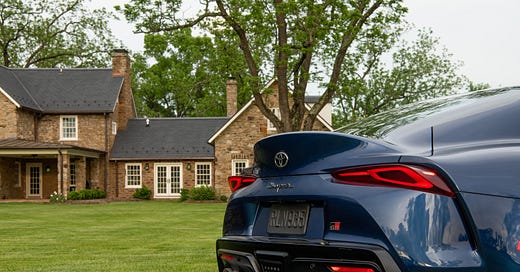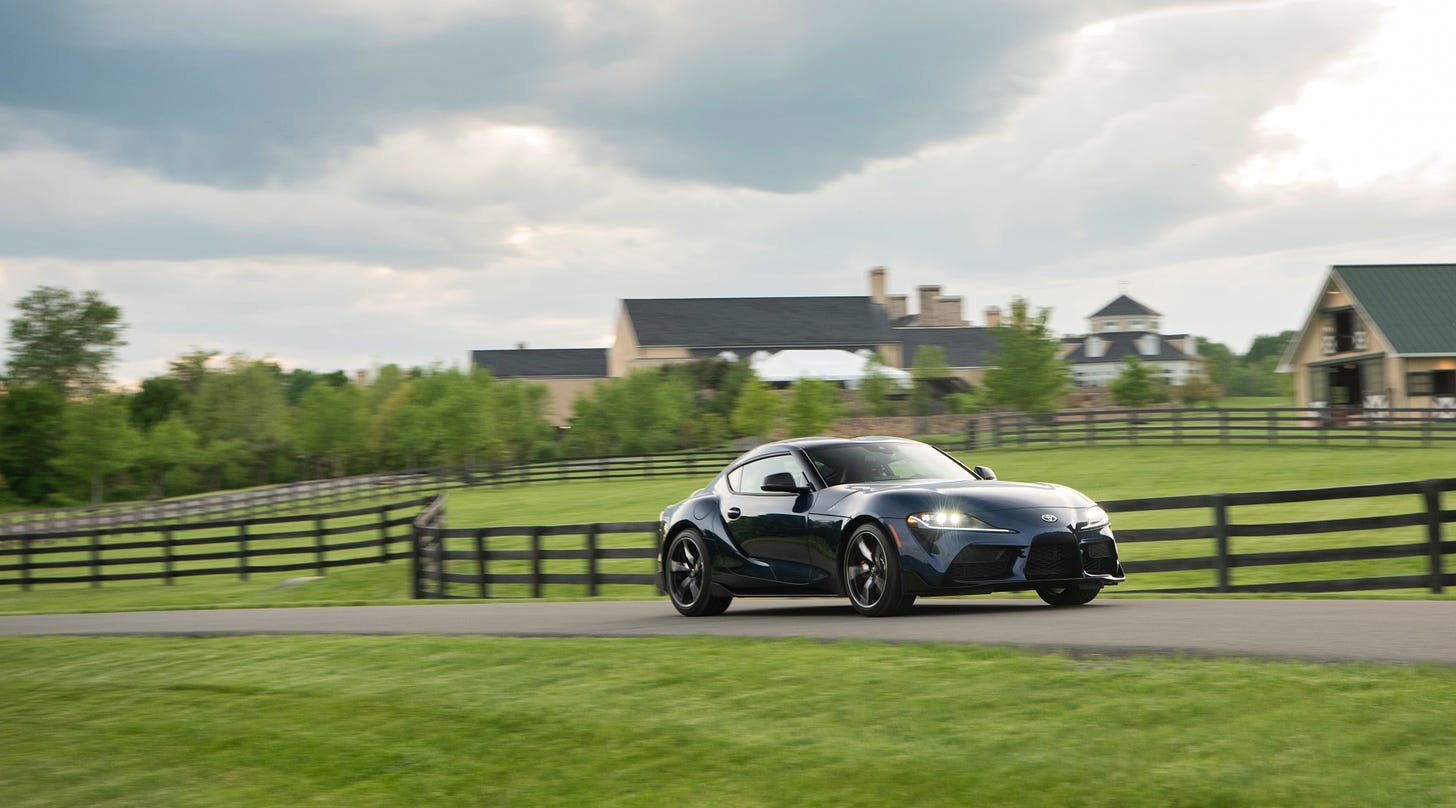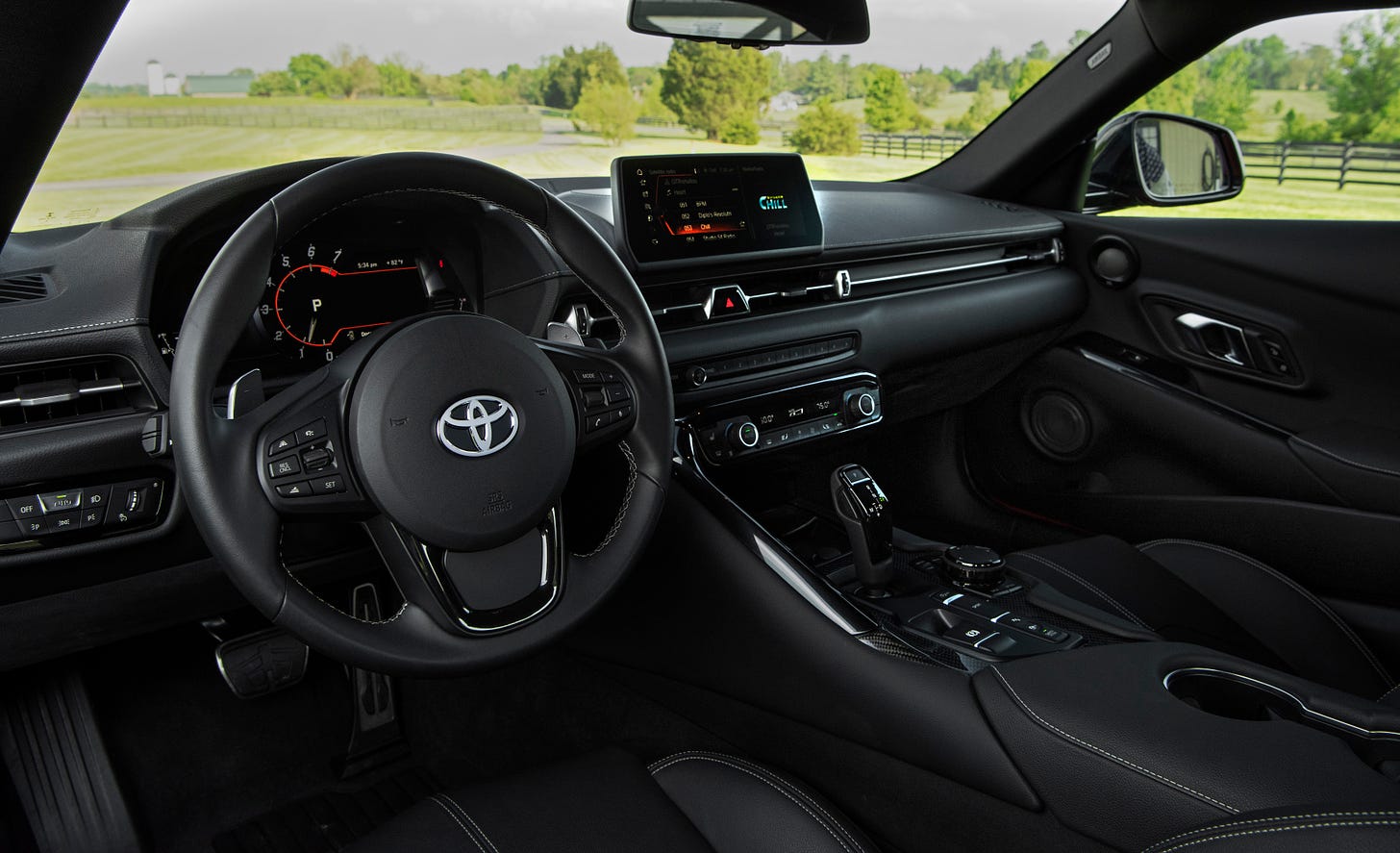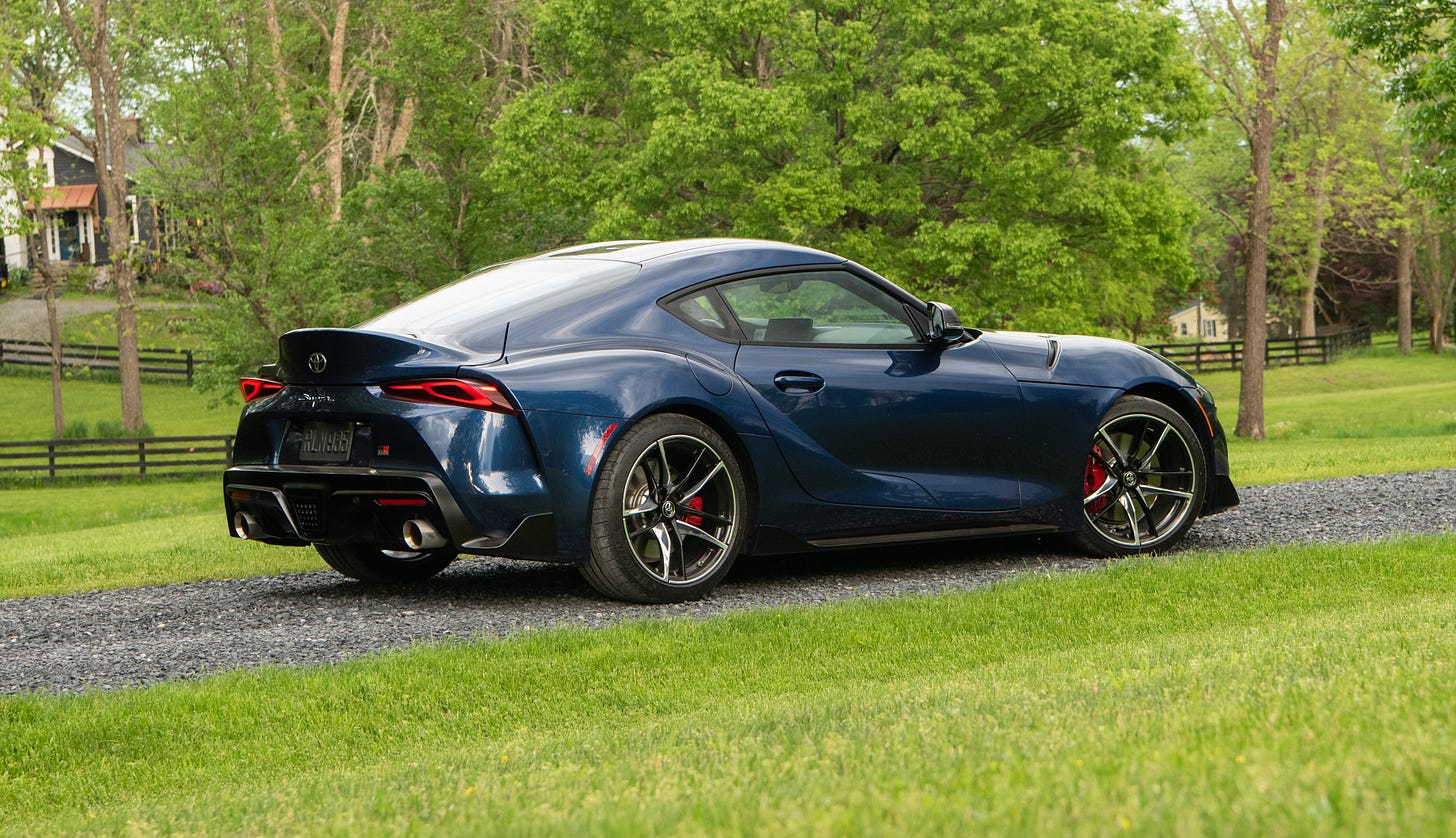NEW YORK CITY — I was suddenly concerned when I walked out of JFK airport that I might not be able to fit my massive Briggs & Riley suitcase in the back of the Toyota GR Supra that I was to drive home in.
I have the B&R large expandable two-wheel unit, a massive bag that can fit oodles of clothes with ease. It's one of those suitcases that very frequent travelers use. I've since added a matching carry-on variant when it was on sale on Amazon for $180 off. They're really good, but I digress.
The Supra is a two-seat sports car and two-seat sports cars are not known for their capacious cargo compartments. This makes them bad for airport runs, but as I eyed the passenger seat and imagined my massive suitcase sitting next to me for the journey, I popped the sportback-esque trunk anyway. Just in case.
Astonishingly, my giant suitcase slipped in as if it was meant to be there. With just a few inches to spare on each side, I closed the lid and started heading north for the drive back to New England.
Priced at $56,615, my Toyota GR Supra 3.0 Premium (that's a mouthful) test car was fully equipped complete with a 3-liter turbocharged inline-six cylinder engine making a Toyota-reported 335 horsepower and 365 lb-ft of torque, though dyno-testing by reputable car magazines has shown that Toyota is sandbagging a little bit on its numbers and different Supras will produce quite a bit more power than the numbers state, which is nice.
The power goes to the rear wheels through an eight-speed automatic with paddle shifters, and there's an active rear differential, active exhaust, adaptive sport suspension, Brembo four-piston brakes up front, sport pedals, and a bunch of other sport things to remind you that you're driving a sports car, as if the low seating position and cramped cockpit didn't give it away.
It's important to note that this isn't exactly a Toyota. The Supra is a BMW Z4 that has been tweaked quite a bit by Toyota, however, which is not a bad thing. The inside is all BMW — which is great because the BMW infotainment system is rather excellent, while those put in most Toyotas is merely adequate.
The engine is from BMW, the same unit that you'll find in the Z4 M40i and the BMW M340i, and the transmission and chassis come from Germany too — however, all those bits have been tuned by Toyota's engineers specifically for the Supra.
Though German-Japanese tie-ups haven't always gone well in the past, they more than delivered here, if for nothing else than the Supra isn't really about the performance. A colleague of mine argued that the performance of the Supra isn't really up to snuff compared to other mid-$50k sports cars, and that the steering is a little numb and that it doesn't live up to the hype.
I disagree on the hype part. Yes, it's not a car that's ready to dominate the track like the outrageously excellent BMW M2 Competition, but that's not the point. I've driven hundreds of cars in my automotive journalism career and the Supra has attracted more attention than any of them — even the fancy McLarens and Ferraris
This humble $56,000 car got constant attention and thumbs up from motorcyclists and other sports cars and kids in the back of SUVs and dads in the front of SUVs and college kids out for a drive and homeless dudes panhandling at stoplights.
I don't know if it's because of the history of the Supra or the bright orange one that everyone remembers from Fast and the Furious or because it just looks awesome (the design is a bit polarizing, but I think it looks phenomenal from the back and front). My tester came in Downshift Blue, which was a deep azure color and it dripped with sex appeal, all curves and tightness.
That's what this car is all about — what any sports car is all about, if we're honest. Very few Supras will ever set one wheel on a race track, in the same way that most Range Rovers will never see the Serengeti.
But getting photos taken by ten year olds on the highway? That's the Supra way. Oh, and if you put it in Sport mode? It'll make a hell of an exhaust note if you're looking to show off, too.








